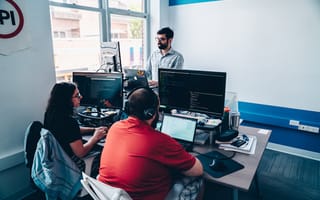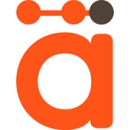In 50 years’ time, when all of us are old and grey, younger generations will scarcely be able to believe that we were alive at a time before the internet permeated almost every aspect of our lives. To them, it will be natural to assume that their career — whatever it is — will necessitate some level of fluency in computer science and systems.
However, many of the engineers currently working in Boston tech companies set out on their current career paths long before it became apparent that almost every business imaginable would need their skills. So what drew history’s first and second generations of professional software engineers to their career path? And what is it about their jobs that keeps them coming back day after day? We spoke to engineers at four Boston tech startups to find out.

As business networks sprawl out of centralized servers and onto everything from IoT devices to employee smartphones to financial systems, endpoint security has become supremely important. Carbon Black’s Predictive Security Cloud is built to simplify a business’ security stack and detect cyberattacks before intruders can penetrate a system.
Associate Site Reliability Engineer Amanda Ivey returned to full-time work with Carbon Black after an internship, in which a mentor helped her administer kernel modules to track memory usage in a Linux operating system.
What got you interested in a career in engineering? Was it a particular person, experience, company, project, or something else entirely?
In high school, my two favorite subjects were always math and Spanish, but I always thought that I wanted to be a doctor and joined the pre-med track in college by studying biology. I took the introductory computer science class during my sophomore year to learn more about bioinformatics, and enjoyed combining logic and language to solve problems in a programmatic manner. I found myself becoming less and less interested in biology — and more and more thrilled about computer science.
I worked as a TA for high-achieving high school students in a summer program where we developed autonomous racing sailboats using embedded programming on an ArduinoMega to combine wind, compass and GPS data to optimize route around a course. I sailed competitively in college, so this really was a most enjoyable way to spend my summer.
Eventually, I switched my major from biology to computer science and had a super unique professor who taught a class called “Programming Languages and Paradigms.” At times, I found myself struggling through the rigorous engineering degree, but this professor really encouraged me to trust my intuition, and said that with hard work and effort, I would do well.
We are trying to solve different problems every day... It keeps me on my toes.”
What are some of your favorite day-to-day aspects of your position?
One of my favorite aspects of my position is that I’m always learning. I get a lot of gratification from understanding how things work and this job allows me to constantly test new technologies and find out how to leverage them to solve technical problems we have. Additionally, we are trying to solve different problems every day. It’s nice to have diversity of work. It keeps me on my toes. The devops world is super hot and quickly developing. It’s really exciting to be immersed in that culture.
Additionally, I love the people that I work with. Everyone has a unique approach to problem-solving and, as a team, we have had some pretty spectacular moments of leveraging each other’s strengths to solve large scale problems. Having played team sports my whole life, I love working on a team with a common goal to enable our developers to seamlessly deliver application code to our production environments.

Cambridge-based edtech nonprofit edX connects 20 million students with courses at 120 top-ranked universities throughout the world — free of charge. Founded by Harvard and MIT, the organization provides online courses to help people change careers, pursue promotions, enter the job market or simply explore new areas of interest, while its “edX for Business” platform helps business upskill their existing workforce.
Engineering Manager Farhanah Sheets was first introduced to computer science by her brother, and ended up leading her high school’s computer science club.
What got you interested in a career in engineering? Was it a particular person, experience, company, project, or something else entirely?
Back when I was trying to create my class schedule for my next year of middle school, my older brother, Farouk, noticed that my school offered computer science classes. My brother has a love for computers and technology and has gone down that path himself. He encouraged me to register for them even though I didn’t know anything about computer science — other than its reputation as a male-dominated field. By my senior year, I had competed for my school in numerous programming competitions and was co-president of our CS club (while being a varsity cheerleader). I truly enjoyed the logic and puzzle-solving of CS, which is why I am still here today.
I continuously learn more about different cultures, forms of logic and even myself.”
What are some of your favorite day-to-day aspects of your position?
I love that I get to work with folks from across our organization, and across the world. I continuously learn more about different cultures, forms of logic and even myself while working with multiple stakeholders and engineers with each new task. I also get a lot of joy knowing that the work my team does has a direct impact in helping resolve issues that people are experiencing while trying to make our system better overall.

While medical technology has advanced steadily in recent decades, the digital systems that support medical professionals and their patients have lagged behind. Abacus Insights’ solution is a data analytics platform which allows insurers to easily access information that was once locked away in incompatible systems and databases. Insurance companies use Abacus’ standardized datasets to improve patient care and find cost savings.
Senior Engineer Adam Kaufman describes computer science as the most responsible option available to him at college, and enjoys the fast pace of life at a startup.
What got you interested in a career in engineering? Was it a particular person, experience, company, project, or something else entirely?
Engineering was a likely course for me dating back to middle school, when I persuaded my parents to buy me a version of Netscape with a web development toolset. Fast forward a bit, and I saw my college trajectory as a choice between studying music and computer science — with only one option offering a greater chance of not ending up destitute. Fast forward some more, and here I am, more than a decade into a fruitful career. So there wasn’t necessarily a particular moment. Instead, ending up in tech was always kind of inevitable for me — and I mean that in the best possible way!
I get to solve immediate technical problems which go out into the wild quickly, and have a material positive impact.”
What are some of your favorite day-to-day aspects of your position?
Life at a startup can be challenging. There are always competing priorities, and everyone is trying to find their way, both individually and as a group. It’s absolutely fascinating to watch and be a part of — if you can keep up! As an engineer, I get to solve immediate technical problems which go out into the wild quickly, and have a material positive impact on members of our team as well as our customers. I also get to have a meaningful voice in our technical direction and cultural growth. The whole ‘multiple hats’ thing is a balancing act, to be sure, but it’s pretty terrific if you can get it right.

Tamr solves business analyst headaches by using artificial intelligence to unify structured and semi-structured datasets, allowing enterprises to make data-driven decisions. Since it was founded in 2013, Tamr’s machine learning experts has unified datasets for Toyota, Thomson Reuters, the Department of Homeland Security and plenty more.
Software Engineer Manager Nik Bates-Haus and Software Engineer Harsh Singh weigh in on how they found their footing in the engineering world.
What got you interested in a career in engineering? Was it a particular person, experience, company, project, or something else entirely?
Bates-Haus: I've always loved building things. I built bicycles, computers, boats, forts, all kinds of things. I started programming when I was in fifth grade, and loved the ability to build things quickly with no material cost. I've been hooked ever since!
Singh: I got interested in programming in math class in high school. Our school used graphing calculators and I would program them to do various tasks. The coolest things I've ever done were making the TI-84 play 8-bit music, and building a program to compose music. I also enjoyed making Compiz Fusion in Linux do really cool desktop effects.
Everyone here is sharp and hardworking — as well as caring and helpful.”
What are some of your favorite day-to-day aspects of your position?
Bates-Haus: Collaboration across the entire company to find innovative solutions to tricky problems. Recently, I was talking with a post-sales dataops engineer about some challenges in customer deployments. This informed a possible approach to a feature we’ve been exploring in research, so I pulled the engineer working on that in, and then we pulled in a designer, and the four of us sketched out a solution to a tricky problem that’s been on our plate for years. Assuming we’re not totally off-base, this could end up being a major new product capability — and a real competitive differentiator — and it came about as a collaboration between people with insight into customers, engineering and design working together.
Singh: I love my team. Everyone here is sharp and hardworking — as well as caring and helpful. I love the diverse backgrounds people have here. The codebase feels like it’s been thoughtfully created and allows room for many developers to work together and make good progress. I feel heard and seen by management. I feel like we are building worthwhile software that our customers find useful.







